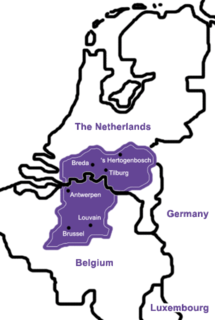A Quote by W. E. B. Du Bois
It is as though nature must needs make men narrow in order to give them force.
Related Quotes
In order to live, man must act; in order to act, he must make choices; in order to make choices, he must define a code of values; in order to define a code of values, he must know what he is and where he is – i.e. he must know his own nature (including his means of knowledge) and the nature of the universe in which he acts – i.e. he needs metaphysics, epistemology, ethics, which means: philosophy. He cannot escape from this need; his only alternative is whether the philosophy guiding him is to be chosen by his mind or by chance.
If we go back to the beginning, we shall find that ignorance and fear created the gods; that fancy, enthusiasm, or deceit adorned them; that weakness worships them; that credulity preserves them and that custom, respect and tyranny support them in order to make the blindness of men serve their own interests. If the ignorance of nature gave birth to gods, the knowledge of nature is calculated to destroy them.
We teach boys to be such men as we are. We do not teach them to aspire to be all they can. We do not give them a training as if webelieved in their noble nature. We scarce educate their bodies. We do not train the eye and the hand. We exercise their understandings to the apprehension and comparison of some facts, to a skill in numbers, in words; we aim to make accountants, attorneys, engineers; but not to make able, earnest, great- hearted men.
In war," answered the weaver, "the strong make slaves of the weak, and in peace the rich make slaves of the poor. We must work to live, and they give us such mean wages that we die. We toil for them all day long, and they heap up gold in their coffers, and our children fade away before their time, and the faces of those we love become hard and evil. We tread out the grapes, another drinks the wine. We sow the corn, and our own board is empty. We have chains, though no eye beholds them; and are slaves, though men call us free.
One of the concepts I was having trouble illustrating was the concept that administrative systems create narrow categories of gender and force people into them in order to get their basic needs met - what I call "administrative violence." I had images of forms with gender boxes and ID cards with gender markers, but I also wanted an image that would capture how basic services like shelters are gender segregated.
The object of a dialogical-liberterian action is not to 'dislodge' the oppressed from a mythological reality in order to 'bind' them to another reality. On the contrary, the object of dialogical action is to make it possible for the oppressed, by perceiving their adhesion, to opt to transform an unjust reality." "In order for the oppressed to unite they must first cut the umbilical cord of magic and myth which binds them to the world of oppression; the unity which links them to each other must be of a different nature.
Humans, like all other creatures, must make a difference; otherwise, they cannot live. But unlike other creatures, humans must make a choice as to the kind and scale of difference they make. If they choose to make too small a difference, they diminish their humanity. If they choose to make too great a difference, they diminish nature, and narrow their subsequent choices; ultimately, they diminish or destroy themselves. Nature, then, is not only our source but also our limit and measure.
Modern capitalism needs men who cooperate smoothly and in large numbers; who want to consume more and more; and whose tastes are standardized and can be easily influenced and anticipated. It needs men who feel free and independent, not subject to any authority or principle or conscience-- yet willing to be commanded, to do what is expected of them, to fit into the social machine without friction; who can be guided without force, led without leaders, prompted without aim-- except the one to make good, to be on the move, to function, to go ahead.
Cities force growth and make men talkative and entertaining, but they make them artificial. What possesses interest for us is thenatural of each, his constitutional excellence. This is forever a surprise, engaging and lovely; we cannot be satiated with knowing it, and about it; and it is this which the conversation with Nature cherishes and guards.


































